Search Results
Showing results 41 to 60 of 115
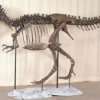
What's in a Dinosaur Name?
Source Institutions
In this activity, learners explore the etymology of dinosaur names.
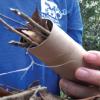
Discovery Time: Bugs
Source Institutions
In this activity, young learners (2 years and up) explore the world of insects and other "bugs" by Making a "bug hotel" with recycled objects.
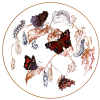
Make Your Own Butterfly
Source Institutions
In this activity (on the left side of page 5, continued on the right side of page 4 of the PDF), learners make models of colorful butterflies.
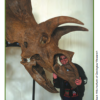
Supersize That Dinosaur
Source Institutions
In this activity, learners explore the size and scale of dinosaurs. Learners listen to "The Littlest Dinosaurs" by Bernard Most. Then, learners estimate the size of a Triceratops and T.
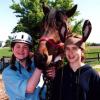
Animal Ears
Source Institutions
This activity (page 2 of the PDF under SciGirls Activity: Horse Ears) is a full inquiry investigation into animal behavior and communication.
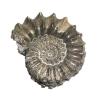
Xenosmilus
Source Institutions
Learners imagine they are paleontologists in Florida, where they find (remove from envelope) paper "fossils" of some unknown creature, only a few at a time.

Backard Bioblitz Bonanza
Source Institutions
In this activity, learners will observe and record living things with in outlined outside space.
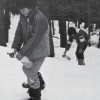
Scent Tracking
Source Institutions
In this wintertime outdoor activity, learners role play wolves tracking their prey by following scented trails.

Waterhouse Hawkins and the Nano Dinosphere Museum
Source Institutions
In this activity, learners explore dinosaurs and fossils by creating a diorama.
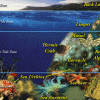
The Wave
Source Institutions
In this multi-step experiment (page 4 of pdf), learners study tide pools, and then drop a "wave" (a 4-pound bag of beans or birdseed) on a shell to mimic the force of crashing surf on tide pool animal
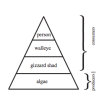
Who Can Harvest a Walleye?
Source Institutions
This activity focuses on interactions within Earth systems and the effects of human activities. In this activity learners build a biomass pyramid.
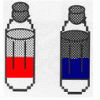
Oil and Soap
Source Institutions
Learners investigate the properties of the liquids in two bottles. One contains layers of oil and water, and one contains oil, water, and soap.
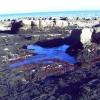
Tidepool in the Classroom
Source Institutions
In this activity (page 4 of the pdf), learners build a model of a tide pool, using chicken wire, paper mache, and other craft materials.
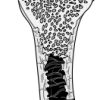
Round, Light and Hollow
Source Institutions
In this activity about bones (page 12 of PDF), learners investigate and compare the weight-bearing capacity of solid and hollow cylinders.
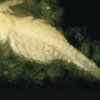
Marine Ecosystems
Source Institutions
In the wild, small crustaceans known as brine shrimp live in marine habitats such as saltwater lakes.
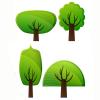
Give or Take?
Source Institutions
In this outdoor activity, learners work in pairs using their senses—especially touch—to learn more about individual trees.

Horton Senses Something Small
Source Institutions
In this story time program, young learners listen to the Dr.
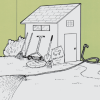
Out of Control
Source Institutions
In this outdoor activity, learners release a portion of a lawn from human control—no mowing, no watering, no weeding, no pest control—and then investigate the changes that result over several weeks.
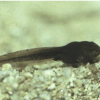
Life Story
Source Institutions
In this two-part activity, learners compare and contrast a variety of life cycles to better understand different organisms and how they develop.
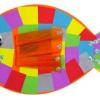
Design-a-Fish
Source Institutions
In this science and language arts activity, learners study fish anatomy and make their very own 3D paper fish.
